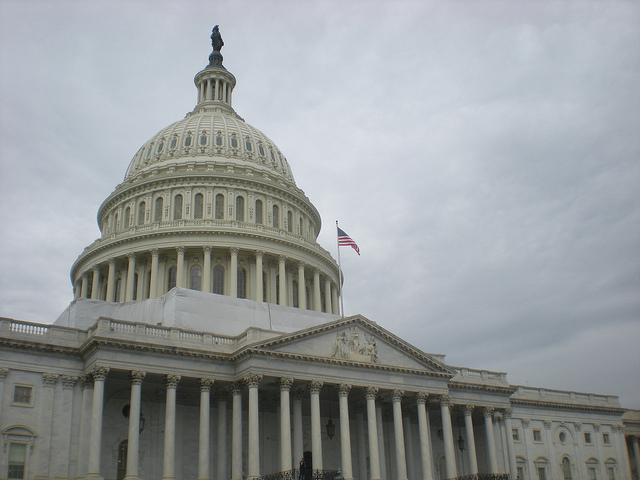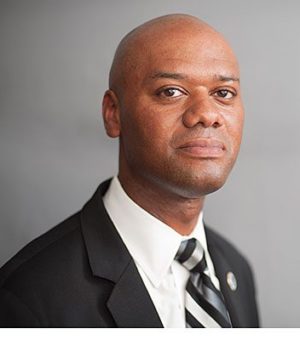
U.S Senate Approves the Justice and Mental Health Collaboration Reauthorization Act. Companion Legislation Introduced in the U.S. House of Representatives
This week, the Senate passed by unanimous consent the Justice and Mental Health Collaboration Reauthorization Act of 2022, sponsored by Sen. John Cornyn (R-TX) and U.S. Sen. Amy Klobuchar (D-MN). This bipartisan legislation, which was also introduced in the House by U.S. Representatives Bobby Scott (D-VA), Steve Chabot (R-OH), Sheila Jackson Lee (D-TX), and Tom Emmer (R-MN), would expand and improve upon the success of the Mentally Ill Offender Treatment and Crime Reduction Act (MIOTCRA) to give the country’s criminal justice and mental health systems the tools they need to serve some of their most vulnerable individuals.
The Justice and Mental Health Collaboration Program (JMHCP), which is authorized under MIOTCRA, was created by the U.S. Department of Justice’s Office of Justice Programs Bureau of Justice Assistance (BJA) in 2006 as a critical way to support this legislation. JMHCP’s mission, then and now, has been to unify justice and health partners around one common goal: increasing public safety by connecting more people with mental health needs to safe and effective treatment.
“The Council of State Governments (CSG) Justice Center is a strong supporter of JMHCP and applauds the Senate for unanimously passing the Justice and Mental Health Collaboration Reauthorization Act of 2022,” said Megan Quattlebaum, director of the CSG Justice Center. “Leaders in law enforcement, courts, corrections, and the mental health community understand the importance of working together to develop solutions that address the behavioral health needs of individuals before they enter the criminal justice system in the first place. I want to thank members of the House and Senate for their leadership on this important issue.”
Collectively, state and local governments use JMHCP grants for a broad range of activities, including establishing diversion programs, creating or expanding community-based treatment programs, supporting the development of curricula for police academies and orientations, and providing in-jail treatment and transitional services. Additionally, grant funds may be used to train law enforcement on identifying and improving their responses to people experiencing a mental health crisis. MIOTCRA was reauthorized in 2008 and again in 2016 with bipartisan support.
The Justice and Mental Health Collaboration Reauthorization Act of 2022 will:
- Strengthen support for mental health courts and crisis intervention teams;
- Support diversion programming and training for state and local prosecutors;
- Strengthen support for co-responder teams;
- Support the integration of 988 into the existing public safety system;
- Amend allowable uses for grant funds to include suicide prevention in jails and information-sharing between mental health systems and jails/prisons;
- Amend allowable uses to include case management services and supports; and
- Clarify that crisis intervention teams can be placed in 911 call centers.
Following Sen. John Cornyn (R-TX) and U.S. Sen. Amy Klobuchar (D-MN)’s introduction of the bill in the Senate, the Senate Judiciary Committee approved the bill on May 12 by voice vote. “Because of the original law, state and local governments have been able to set up and fund mental health courts, specialized first responder options, in-facility treatment for mental illness and substance abuse, and intervention for [juveniles],” said Ranking Member Chuck Grassley (R-IA) in a prepared statement. “These programs have proven effective, and S. 3846 continues this track record.”
The Justice and Mental Health Collaboration Reauthorization Act has been endorsed by Addiction Policy Forum, American Foundation for Suicide Prevention, American Jail Association, American Probation and Parole Association, Major Cities Chiefs Association, Major County Sheriffs of America, Miami Center for Mental Health and Recovery, National Alliance on Mental Illness, National Association of Counties, National Association of Police Organizations, National Association of State Alcohol and Drug Abuse Directors, National Association of State Mental Health Program Directors, National Conference of State Legislatures, National Criminal Justice Association, National District Attorneys Association, National League of Cities, National Sheriffs’ Association, and Treatment Alternatives for Safe Communities, among other organizations.
About the author

The sharp rise in school shootings over the past 25 years has led school officials across the U.S.…
Read MoreA three-digit crisis line, 988, launched two years ago to supplement—not necessarily replace—911. Calling 988 simplifies access to…
Read More Taking the HEAT Out of Campus Crises: A Proactive Approach to College Safety
Taking the HEAT Out of Campus Crises: A Proactive Approach to College Safety
The sharp rise in school shootings over the past 25 years has…
Read More From 911 to 988: Salt Lake City’s Innovative Dispatch Diversion Program Gives More Crisis Options
From 911 to 988: Salt Lake City’s Innovative Dispatch Diversion Program Gives More Crisis Options
A three-digit crisis line, 988, launched two years ago to supplement—not necessarily…
Read More Matching Care to Need: 5 Facts on How to Improve Behavioral Health Crisis Response
Matching Care to Need: 5 Facts on How to Improve Behavioral Health Crisis Response
It would hardly be controversial to expect an ambulance to arrive if…
Read More










